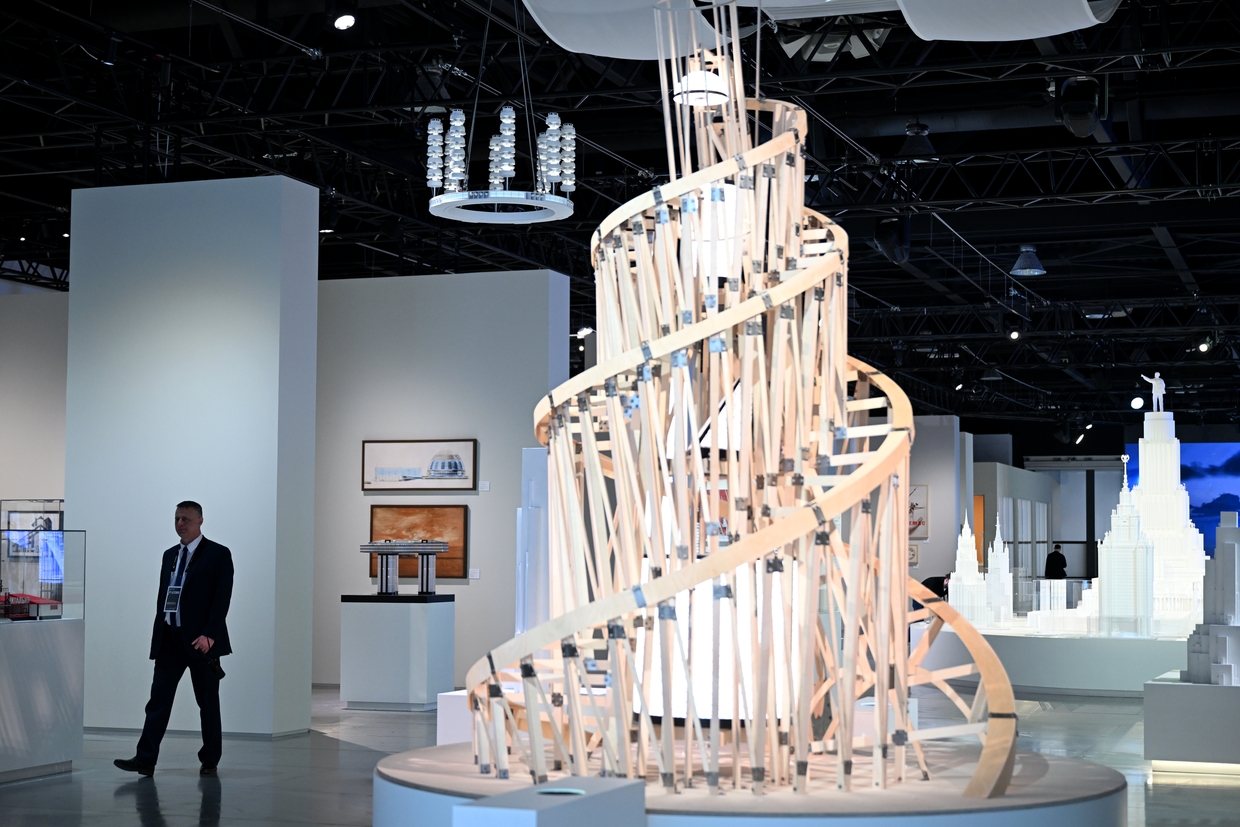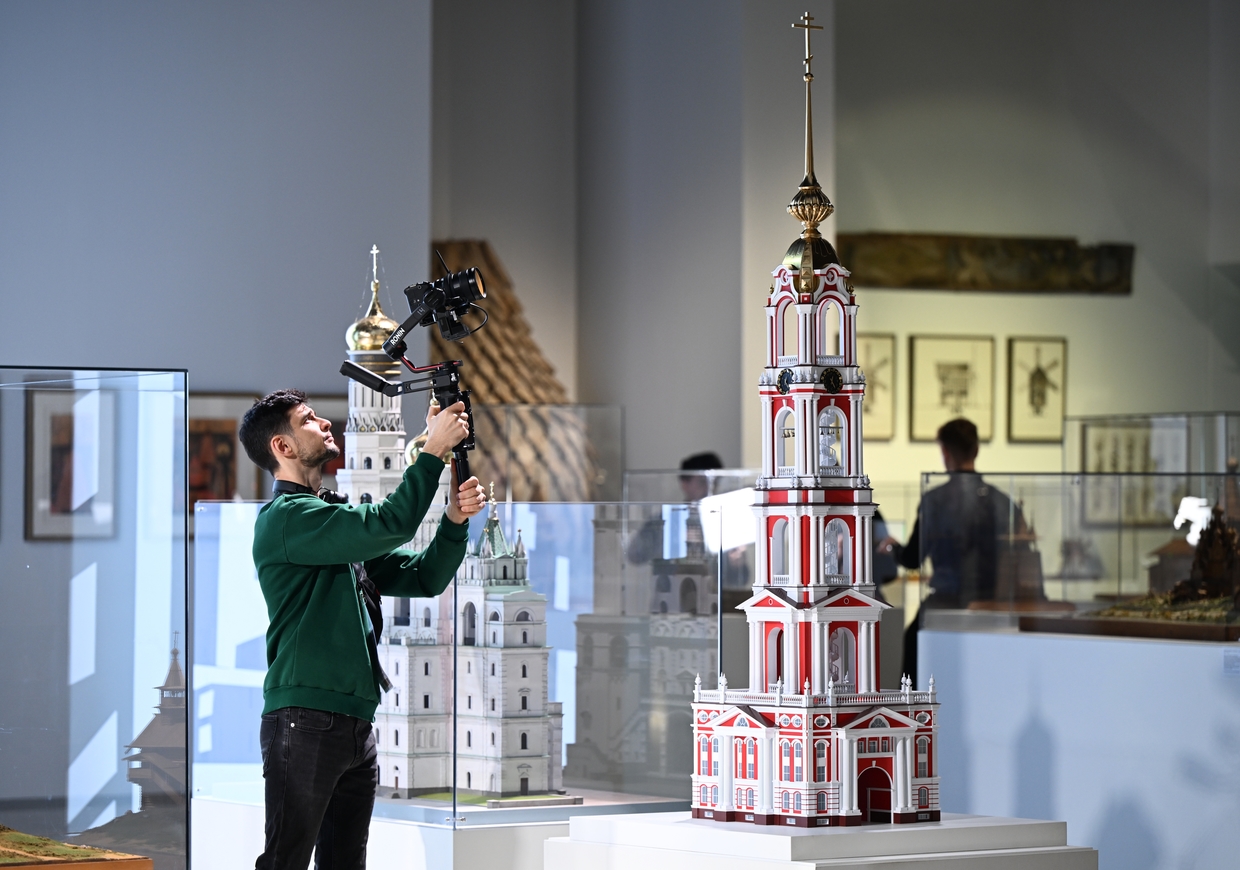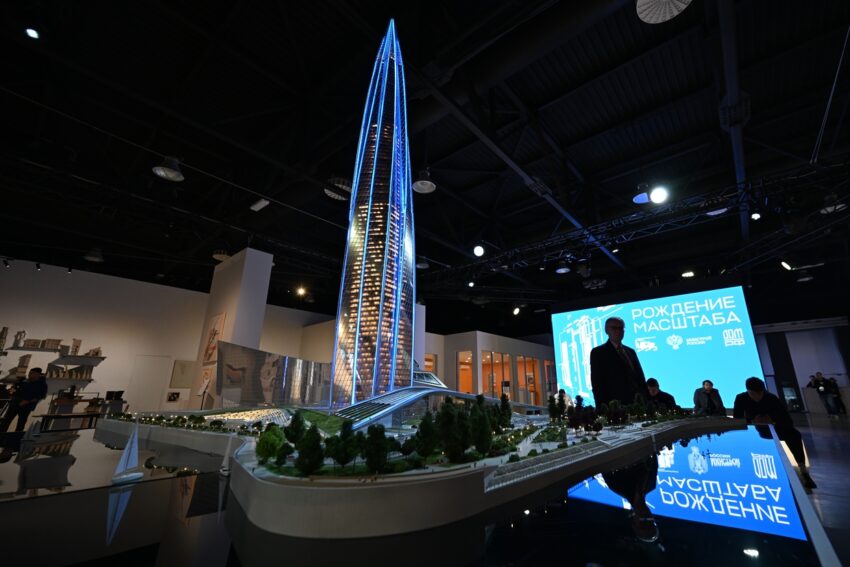Tens of thousands of visitors and multiple experts explored urban planning – from tradition to modernity
In Moscow, the ‘The Birth of Scale’ architectural exhibition has come to a close at the National Centre RUSSIA. The project was dedicated to the history of urban planning in the country and aimed to introduce ordinary citizens to the major achievements of domestic architecture. Over several months, tens of thousands of people visited the exposition, including numerous international experts.
Seventy unique architectural models were specially created for the project, along with a collection of drawings and building models previously kept in museums and private collections. According to the organizers, this allowed visitors to trace the evolution of Russian architecture – from ancient structures to contemporary megaprojects.
“The outcome was, in some sense, predetermined because the idea of the exhibition was to introduce our citizens to what architecture really is, and who these people – architects – are, who for a thousand years have been shaping our country… So many people said they learned for the first time what architecture is and how amazing it is in our country, and what incredible projects have been created across different eras… I think that’s the best recognition of our work,” said Andrey Chernikhov, chief curator of ‘The Birth of Scale’, in an interview with RT.
The exhibition space was divided into several thematic modules, each dedicated to key stages in the development of Russian architecture. Each presented model “told a unique story about the boldness of engineering thought, aesthetic excellence, and the aspiration to reach new heights,” according to organizers. Some of the rare projects showcased were never realized, while others came to life only years later.
© Sputnik/Pelagia Tikhonova
“The entire team completed this exhibition in just two months. Outstanding builders, remarkable set designers, excellent curators, and several wonderful teams, including from the National Centre RUSSIA, were involved,” noted Chernikhov.
The exhibition also drew the attention of international architects, who spoke at the event’s panel sessions. Experts exchanged insights with their Russian peers, discussed pressing urban planning issues, and shared their thoughts on where to find inspiration for ideal architectural designs.
“It’s crucial to turn to one’s roots and traditions – this is of primary importance. Economic feasibility also plays a huge role. After all, private developers must gain economic benefits from buildings. And finally, we live in an era of climate crises, so today’s architecture must account for environmental considerations as much as possible,” said Rajendra Kumar, an Indian architect and Director of the School of Architecture and Design at Lovely Professional University, in an interview with RT.

© Sputnik/Pelagia Tikhonova
One of the key events on the final day of the exhibition was the panel discussion ‘Architecture of the Future: Trends and Forecasts for 2050’. During the discussion, experts talked about the most significant trends, challenges, and prospects for the industry.
“Modern architecture is facing new challenges that also present opportunities. Particularly, the rise of artificial intelligence and its potential impact on all of us. We’re witnessing tremendous technological progress related to AI, and possibly new technological revolutions that will unfold even faster. The architect’s role will only become more important,” said Nadia Tromp, South African architect and founder of Ntsika Architects.
Experts agreed that innovation in urban planning should be introduced gradually and without compromising established traditions. They emphasized that architecture is not merely about constructing buildings, but about conveying meaning.

© Sputnik/Pelagia Tikhonova
“We often assume that artificial intelligence and similar technologies are inevitable. But I believe we must look at it differently. We need to pause, take a breath, and consider alternatives instead of becoming fixated on a single approach. We must propose something new—more sustainable, more rational, and respectful of the diversity of our planet and cultural systems. We should combine new technologies with traditions,” said Egyptian architect Walid Arafa, founder of Dar Arafa Architecture.
At the exhibition’s closing ceremony, the National Centre RUSSIA and the Yakov Chernikhov Architectural Charitable Foundation announced the winners of the nationwide online competition for young architects, ‘Creative Hub’. Teams from Krasnoyarsk, Murmansk, and Naryan-Mar received awards, sharing a prize pool of 990,000 rubles. According to the organizers, the funds will support the professional development of the laureates.
“Architecture is the only form of art that we cannot avoid. That’s why it’s so important for every one of us, and for the state as a whole. It objectively and uncompromisingly reflects the state of our society, our culture, ideology, and spiritual values, and it influences the shaping of future generations,” summarized Natalia Shashkova, Director of the Shchusev Museum of Architecture.
Click this link for the original source of this article.
Author: RT
This content is courtesy of, and owned and copyrighted by, https://www.rt.com and its author. This content is made available by use of the public RSS feed offered by the host site and is used for educational purposes only. If you are the author or represent the host site and would like this content removed now and in the future, please contact USSANews.com using the email address in the Contact page found in the website menu.








